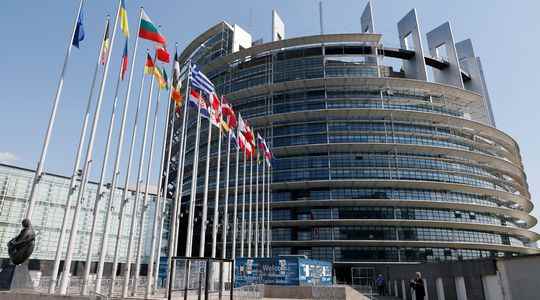After more than 17 years of waiting for North Macedonia and 8 years for Albania, the European Union announced on Tuesday July 19 the opening of accession negotiations for the two countries. “This is a historic moment,” said European Commission President Ursula Von der Leyen during a press conference in Brussels with the leaders of the two Western Balkan countries. And to add: “This is what your citizens have been waiting for so long and what they have worked so hard for, and this is what they deserve”.
Nevertheless, “the way to go before a definitive accession to the European Union is still long”, recalls to L’Express the researcher at the Jacques Delors Institute Cyrille Bret. Maintenance.
L’Express: North Macedonia has been a candidate for European membership since 2005, Albania since 2014. Why is the decision falling today?
Cyrille Bret: These two candidatures are old and their recognition is too. If there is movement today precisely, it is because the government of North Macedonia announced on Saturday that it had accepted a compromise to settle its dispute with Bulgaria, a Member State of the European Union with which it has long-standing historical and cultural disputes. It is absolutely essential that this compromise be recorded, insofar as it is impossible to admit within the European Union a country which has disputes with a Member State.
Could the war in Ukraine have been an accelerator?
Certainly. It reveals the aspirations of countries to join the EU and is an accelerator of these processes.
The granting of candidate status in record time by Ukraine and Moldova raised expectations from other candidates, including Albania, North Macedonia, Serbia and Montenegro. Negotiations with Turkey are at a standstill. These processes are very demanding and time-consuming. And these countries which have been building their candidature for ten years, even twenty years, would not like to be overtaken by the latest arrivals.
Now, the two countries join Serbia and Montenegro in the process of accession negotiations. What does it consist of?
The purpose of these negotiations is to specify the Copenhagen criteria that all candidate States must meet. The text, established in 1993, lists the conditions that must be met by a country wishing to apply to join the EU. It is a question of bringing the life of the candidate country into conformity with the Community acquis of the EU (rules common to all the Member States). These range from trade laws to food standards. Point by point, it is a matter of measuring the gaps that exist today between the Community acquis and national legislation. This process is a real work of normative alignment. It’s very long.
How long can this process take?
It usually takes about ten years to complete this process. And if today Ukraine acts as an accelerator, this process is quite incompressible. Firstly because the Member States do not have the administrative capacity to go faster. But also because contrary to belief, the EU does not have enough resources either. It’s very long because it’s very demanding. It is about the incorporation into the life of a country of all the essential standards of the EU. National parliaments must adopt laws, develop the legislative apparatus. Then, the European institutions must verify that the required changes have taken place…
In North Macedonia, it seems that some people’s patience with the EU has evaporated. Demonstrations have erupted in recent weeks against compromises to claim EU membership… Is the country still motivated by this candidacy?
This is part of the difficulties of long-term processes. The impatience of the Macedonians is very great, and its membership will not happen overnight, but the country does not really have any other choice. It is a state of two million inhabitants which is very landlocked and is struggling to get its economy off the ground.
Opposition to the compromises requested by the European Union risks further slowing down the accession process. But the parliamentary life of these countries is not dependent on membership. There will be moments of acceleration of the procedure and moments of withdrawal.
However, these are not processes that take place against the will of the people. The candidate countries always have the choice to stop or to continue. We saw it with Iceland in 2015 or with Switzerland in 2016. The process is not irreversible.
At the level of the member countries, can there still be blockages?
Old disputes over North Macedonia and Bulgaria could resurface, further delaying the process. In addition, it is also possible that reluctance may arise on the part of other Member States in the face of this wave of enlargement. This will lead to the redistribution of wealth to these candidate countries first, then new members second. This implies that budgets are reviewed for everyone.
Is the enlargement of the European Union in the Balkans absolutely necessary?
For the Balkan countries, membership of the European Union seems essential in economic terms and in terms of the solidity of political institutions. These are small, very landlocked countries that already depend on a great deal of external aid, and in particular from their immigrant populations, in order to develop.
For the European Union, this is not vital, yet it is the last European space that is not part of the Union and others are working to deploy their sphere of influence there. It is important for the EU to make use of its advantages, in particular its proximity to these territories, in the face of rivalry from Russia, China and very slightly that of Turkey. The Union cannot afford to have this area of vulnerability, because the Balkans could become an area of risk by being integrated into the area of influence of rivals of the EU, with political instabilities.
These five candidatures from the Balkans mark a turning point in the history of the European Union. Either it asserts itself, or it crashes and runs the risk of being attacked again on its own soil.
